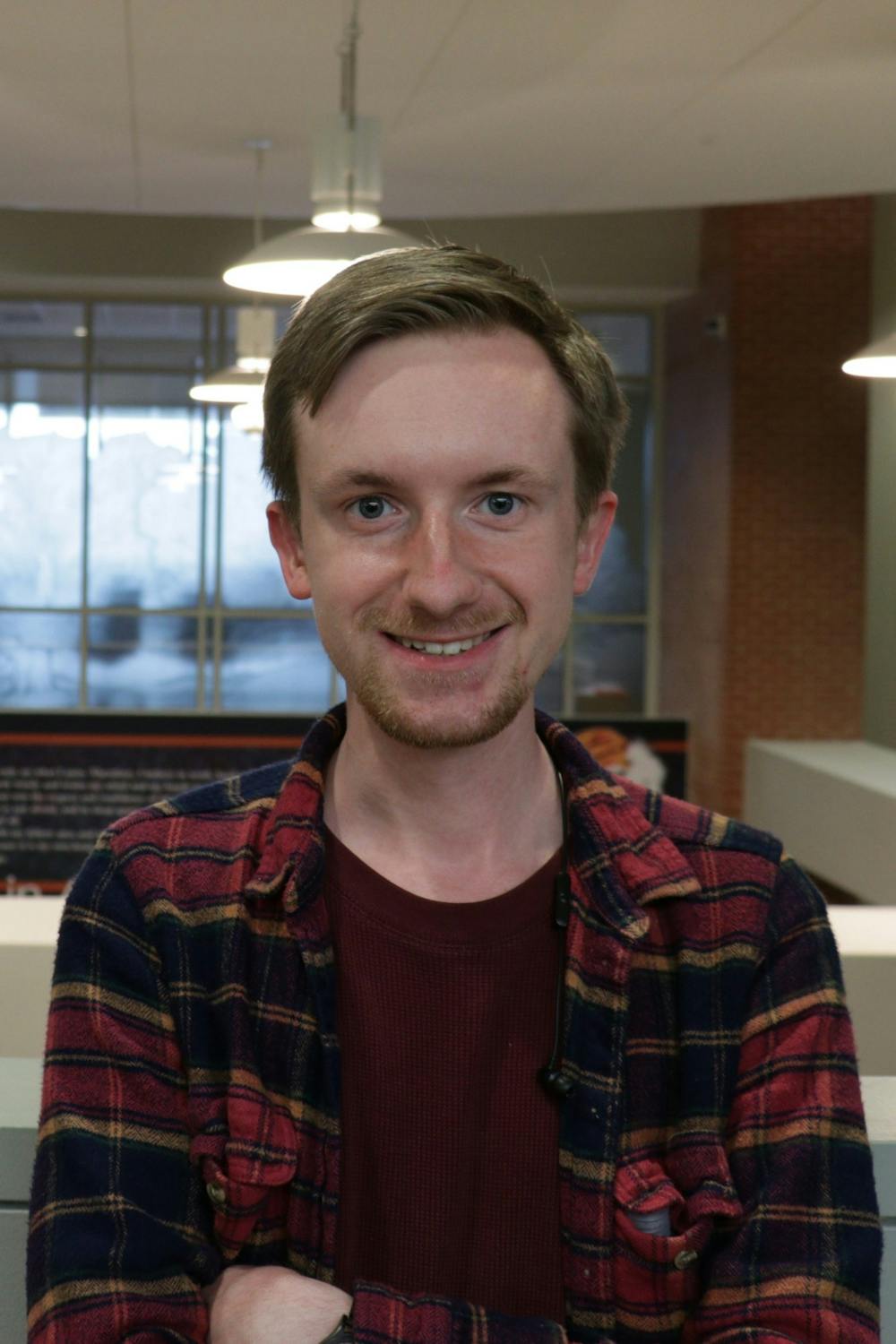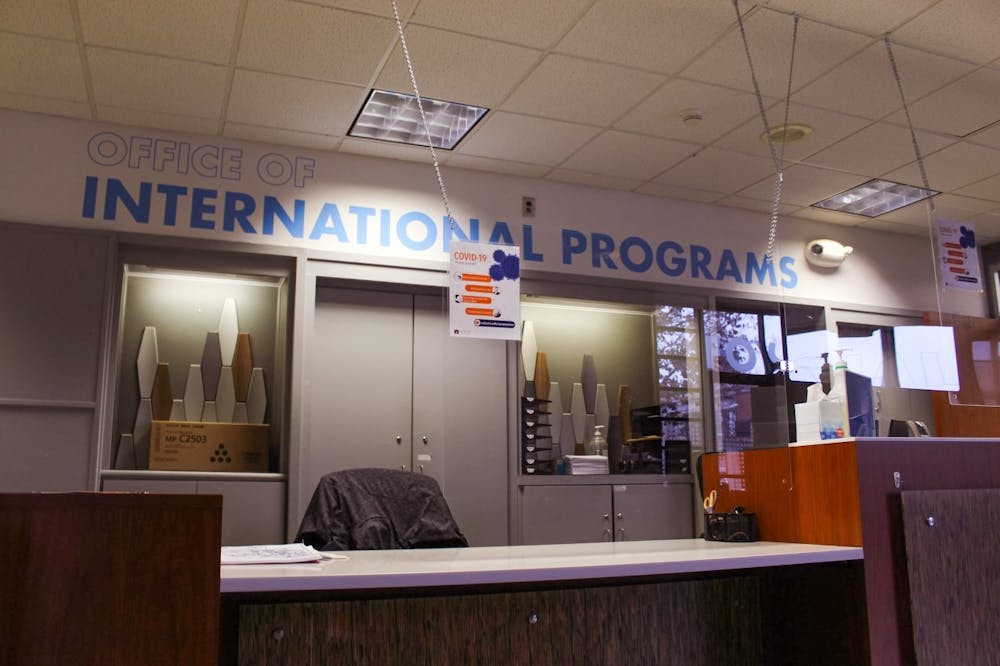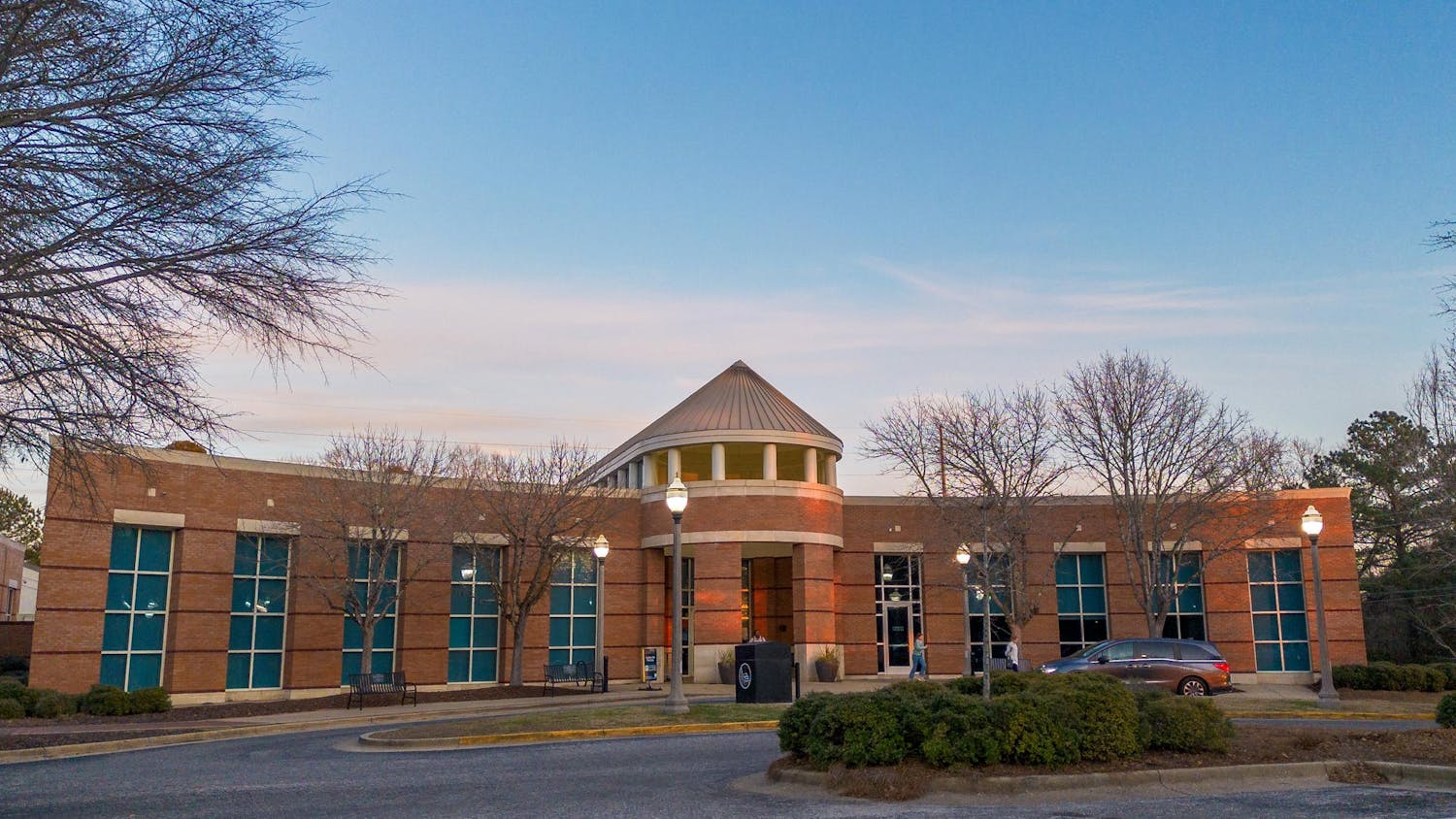International students travel to the U.S. in pursuit of educational opportunities they may not have in their home countries. Their time abroad also provides them a window of what it’s like to live here. Though many countries look toward America for guidance, some Auburn international students say the U.S. in 2020 challenged their perceptions of what they once felt was a role model nation. They feel events last year bear some similarities to life back home.
As America entered a new decade and another presidential election year, morale seemed high but was soon broken when COVID-19 arrived in full force in March.
Ishwor Poudel, a Ph.D. student in pharmaceutical sciences from Nepal, did not expect some of the reactions he’s witnessed from Americans about the virus and the Centers for Disease Control and Prevention’s safety recommendations.
“In February, I experienced staredowns in grocery stores when I was using a mask after hearing about China’s situation,” Poudel said. “I also had [discussions] with some of my domestic friends and colleagues about the validation of the masks’ importance.”
Before the pandemic, Americans were not used to seeing face masks outside medical and hospital settings, but to Poudel they were nothing new. Masks are commonly used in some Asian countries like Nepal, as protection against urban pollution and disease epidemics; medical assistance is not as readily available as in the U.S. Kathmandu, the capital of Nepal, sees more frequent rates of lung diseases because of its overcrowded population, Poudel said.
Nepal, a nation of 30 million people, has been significantly impacted by the pandemic because of inadequate health facilities and, in part, because of what Poudel called a “sluggish and unstable” government.
“All the hospital beds are already packed and there is no isolation ward for COVID-19 right now,” he said. “There are 840 ventilators in the whole country.”
Masks were also a regular sight before COVID for Euitaek Yang, a Ph.D. student in pharmacy from South Korea, but not only as a defense against viruses.
“It’s because micro yellow dust blows from China to all regions of South Korea,” Yang said, referring to a weather phenomenon known as Asian Dust stemming from China’s industrialization and growing desertification.
Yang said he also did not expect how America would approach the pandemic, which has been marred by false claims about transmission and apathy from some citizens.
“I am worried and surprised about some people who believe COVID-19 is fake,” he said. “I have never been infected, but I am still worrying about it.”
Other students say misinformation about health practices and disease are prevalent in their home countries and because of this, they were not as concerned. Chidinma Odili, Ph.D. student in biochemistry from Nigeria, said people there believe death is inevitable and do not fear disease as epidemics are more common there than in America.
“Most people will just take over the counter medication if they feel symptoms like headache or fever,” Odili said. “Usually when people get to the hospital when they can’t manage their symptoms anymore, by then it’s already too late.”
There are similar sentiments in Pakistan, where Syed Hassan Raza Shah, a Ph.D. student in aerospace engineering, hails from.
“It is the behavior of our society,” Shah said. “Particularly the uneducated class thinks that this virus is fake [and] that there is some huge global conspiracy going around.”
In Pakistan, the pandemic’s effects and people’s reactions have somewhat mirrored those of the U.S., Shah said, and this has impacted him personally. His brother and sister back home are doctors and told him all beds in their hospitals were occupied in March.
“In Pakistan, we live together in extended families — grandparents, brothers, their kids — we all live together,” he said. “Many of my family got infected, [but] they all have recovered.”
Meanwhile in the U.S., Shah said he is unsettled by the thought of contracting the coronavirus since he lives with his spouse and three children. In June, he met someone whom he had dinner with who called the following day to inform him they had tested positive.
“That was scary for me,” Shah said. “I isolated for six or seven days and went for the test; luckily it was negative. If I get sick, it would be very difficult to take care of the family and isolate.”
The pandemic wasn’t the only crisis Americans faced this year. Citizens across the nation took to the streets to protest when a video emerged of a Minneapolis police officer kneeling on the neck of George Floyd, a Black man, for nearly eight minutes until he died. The protests were also a culmination of other incidents involving the deaths of Black Americans at the hands of police in the past few years. This year’s demonstrations sparked international recognition and calls for police reform not just in America, but other countries as well.
“I just thought [Floyd’s death] was very sad,” Odili said. “I’m not saying that that incident was purely out of racism, but I just found it horrifying that the police officer could kneel on his neck for that period of time in public.”
Odili said Nigerians do not think much about racism as there is little racial diversity there, but before her arrival in the U.S. she didn’t believe it still occurred in the states. It was not until more protests began to build and a scene wherein several crosses were burned over an interstate bridge near Tuskegee, Alabama, in June that her thoughts began to shift.
“Once you hear of crosses burning, the first thing that comes to your mind is the [Ku Klux Klan],” Odili said. “[Racism] is still very much alive — maybe not out in the open but it was still there somehow.”
The KKK is known by some Nigerians, Odili said, but its purpose is misunderstood as some younger men have formed groups bearing the hate group’s name, which has indicated to her that many Nigerians are not in touch with the American idea of racism.
“The KKK … victimized Black people, so it makes absolutely no sense for a group of young, Black men to name their group after [it],” she said.
However, Nigerians have had their own demonstrations against police in recent times in the form of the #EndSARS movement. Protestors have called for the disbandment of a unit of the Nigerian Police known as the Special Anti-Robbery Squad, after officers killed many younger Nigerian men. The unit was formed in 1992 to deal with robbery, vehicle theft, kidnapping and other connected crimes but more recently began arresting people for “offenses” like having tattoos, being dressed certain ways or having dreadlock hairstyles, which police associate with someone being a robber, Odili said.
“Normally if you think someone is a robber and you arrest him, you should take him to trial, right?” she said. “Let the courts prosecute him. After a while, they began to just shoot people if they had kept them in custody for so long and [suspects] didn’t have any money to release themselves.”
The #EndSARS movement began online via social media platforms like Twitter in 2017, but it was not until this year that activists established an in-person presence. Much like the George Floyd protests in America, demonstrations swept Nigeria after citizens lost their jobs and were locked down and universities closed because of the pandemic, Odili said.
“They had all the time for the anger to build, and then videos were being released online so that just provoked them,” she said.
For the first few weeks, protests were peaceful but by the third week, soldiers were using live bullets on protestors, Odili said. To date, a combined 69 civilians, police officers and soldiers have been killed resulting from the unrest, according to Nigerian President Muhammadu Buhari and reported by the BBC.
When some participants began demolishing government property and burning police stations in mid-October, the Nigerian government vowed to disband SARS and replace it with a new Special Weapons and Tactics unit, or SWAT. Odili said the protests continue today as people do not believe the government will stay true to its word given it promised to eliminate SARS two other times.
“They wanted action this time, not just words,” she said. “It wasn’t just about disbanding SARS, it was about police reforms. They wanted reform of the judicial system where people have the right of a fair hearing before [being] tried.”
Elsewhere in the world, the effects of the Black Lives Matter movement were felt in countries like the United Kingdom. LB Fullerton, junior in international studies, moved to Daphne, Alabama, in her high school years but was born and raised in England. She said Brits understand the protests as there are parallels of Islamophobia and xenophobia in the U.K.
“We have more people of Arab and Asian descent living in the U.K.,” Fullerton said. “I think Islamophobia hit a whole new level after the Manchester [Arena] bombing [in 2017]. Hate crimes are prevalent against those who practice Islam. With xenophobia, it grew greatly with COVID.”
As protests in America carried into the summer, they also carried beyond national borders into other continents.
“My cousins even participated in protests that were held in the U.K. and had several conversations with their families,” Fullerton said. “It was a global movement because racism is not just prevalent in America, but in the world.”
International eyes were also on the U.S. this year as Americans voted in the presidential election in November. Though Election Day was on Nov. 3, it took until Nov. 7 for the Associated Press and other news outlets to call Democratic candidate Joe Biden the president-elect since more mail-in ballots than usual had to be counted. The transition was not made official until Nov. 23 amid claims of election fraud spun by President Donald Trump, which election officials at state and federal levels have called baseless.
Other countries are familiar with voter fraud, like Nigeria. Odili said campaign representatives are known to offer incentives to voters for choosing a certain candidate, and they offer money to election officials under the guise of reasons like “drinks because they’ve worked so hard.”
“People get underage children to vote,” she added. “You are supposed to be over 18, but in some places, they rig the election to get babies [or] anybody with a thumbprint to vote.”
Fullerton said the U.K.’s population has largely felt Trump is a “joke” over the span of his four years as president. She said many Brits are more favorable toward Biden’s values but feel he is somewhat of a pushover. However, she said opinions can vary.
“This isn’t just a British thing but a European thing in general,” Fullerton said. “I think it has almost caused people to not take America seriously.”
Do you like this story? The Plainsman doesn't accept money from tuition or student fees, and we don't charge a subscription fee. But you can donate to support The Plainsman.

Tim Nail, junior in journalism, is the campus editor for The Auburn Plainsman.





